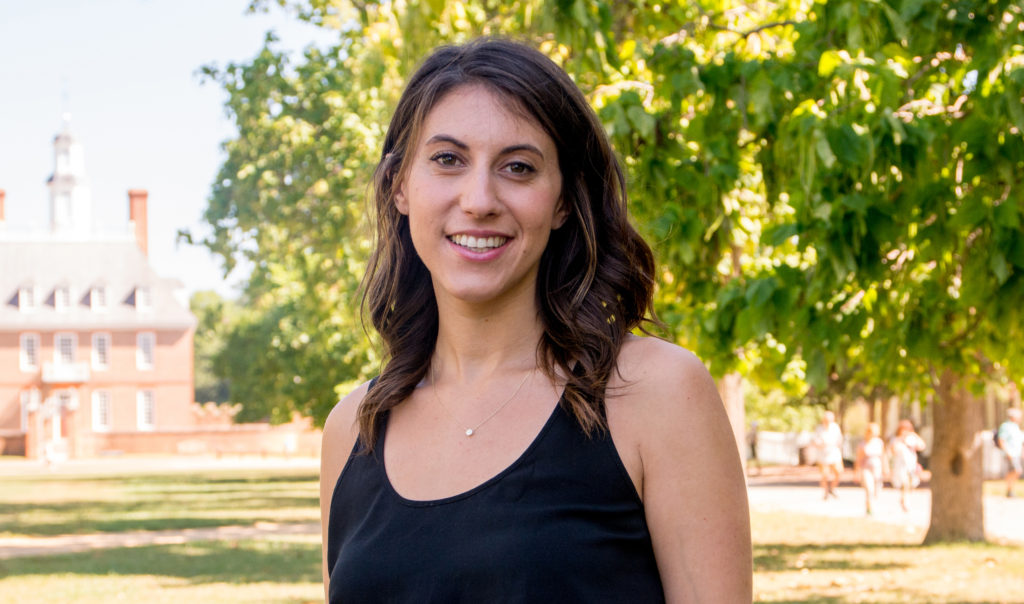By Sofi Hersher
2017 BJC Fellow
Before I attended the BJC Fellows Seminar this summer, I thought I knew a lot about American Christianity. I’ve spent years studying the Protestant Reformation, the faith of the founding fathers, and the unique expressions of American civil religion; I’ve even read the New Testament — cover to cover (twice!) — I’ve written papers about lectio divina and given lectures on millenarian eschatology. But what I knew was, as they say, only the letter and not the spirit of the law. What the BJC Fellows Seminar taught me, more than anything else, is the dynamism and intricacy of lived Christianity in the United States. The Baptist tradition is infinitely more complex than I could have imagined and, as a Jewish person, I am thankful for the opportunity to have observed it up close.
Dr. Pam Durso (adjunct faculty at Mercer University’s McAfee School of Theology, executive director of Baptist Women in Ministry and former BJC board chair) underscored this complexity during our first full day in Colonial Williamsburg. She noted that between the 14 people in the room (13 of whom were practicing Christians), 11 different Baptist conventions and affiliations were represented. This was staggering to me.
I was further captivated by a Bill Leonard quote Dr. Durso shared several moments later, “Baptist polity…is predicated on an untenable tension between individualism and community.” Having recently completed Four Fragile Freedoms by Walter Shurden, I was familiar with the concepts of Church, Soul, Bible and Religious Freedom. However, I can’t say I’d done the work to understand how these ideas translate and overlap in the real world. With my knowledge of the Baptist faith and tradition limited almost entirely to the political machinations of the Southern Baptist Convention, it was fascinating and startling to realize the broad spectrum of Baptist thought and theology in America.
What emerged over the course of the first day of the BJC Fellows Seminar was a map of the American Baptist community and an awareness and understanding of its three distinct levels: individual, congregational and institutional.The legacy of the Free Church tradition grants individual congregations incredible leeway to determine a unique approach to building and maintaining a religious community. An emphasis on Bible Freedom places sacred text at the center of all Baptist life and congregational community. Soul Freedom, which I understand to be the autonomy to come to God via one’s own individual path, requires each individual to constantly evaluate if their religious community is reflecting and espousing a version of Baptist theology that corresponds with their own beliefs and understanding of scripture. All three converge to create American Baptist life.
Once I was able to grasp this complex relationship, the work and challenges faced by the Baptist Joint Committee for Religious Liberty became significantly clearer to me. The BJC, like my own employer, the Religious Action Center of Reform Judaism, helps people of faith act out their values. It turns complex subject matter into something understandable and relevant. The Baptist world is — much like the Jewish world — messy and beautiful, but confusing and often hard to organize. It’s exciting how much we can learn from one another. As the first BJC Fellow of a non-Christian faith, I am grateful to help strengthen the bonds between the Jewish and Baptist communities as we work together to protect our shared freedom to practice our faiths peacefully.
Religious liberty is a precious and profound contribution to democracy and enlightened values — but it is fragile, and it must be protected and reaffirmed. This is why the work of the BJC is so vital, and why I am so honored to be a part of it.
Read other reflections from BJC Fellows and visit BJConline.org/Fellows for more on the program.




